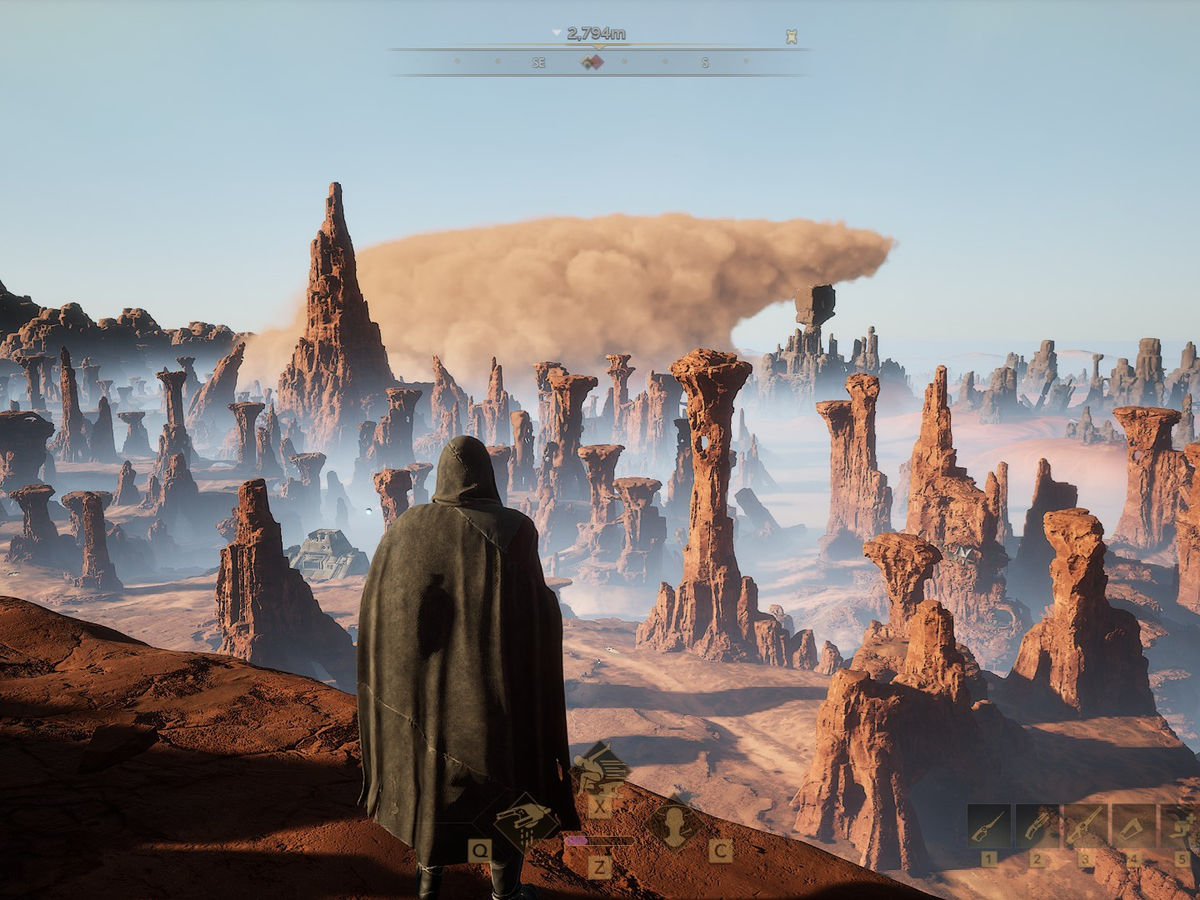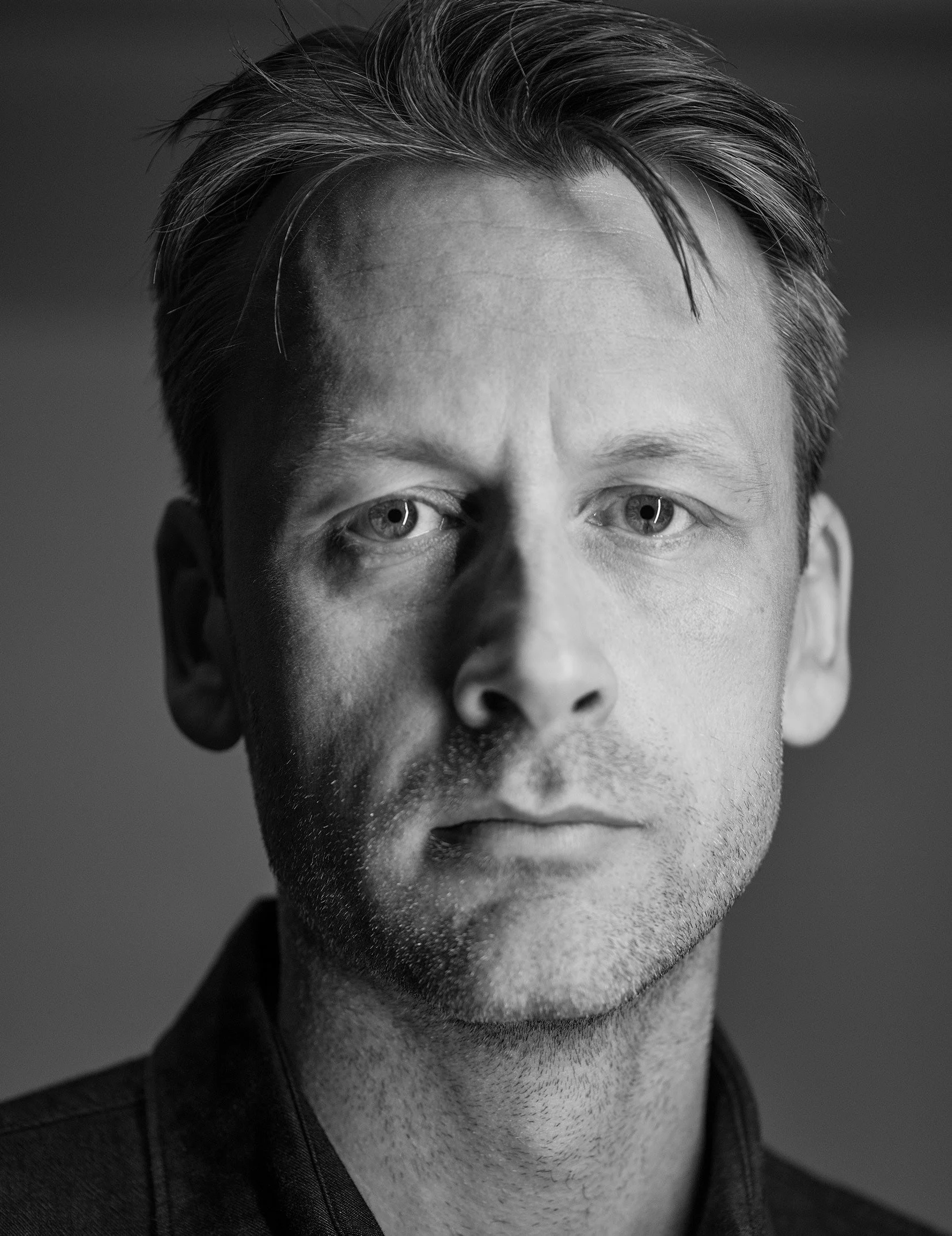5 Questions With Knut Avenstroup Haugen
Knut Avenstroup Haugen is the composer whose scores are at the centre of some of the world’s biggest fantasy playgrounds. From the vast deserts of Dune: Awakening to the epic landscapes of Conan Exiles, his knack for world-building through music has earned him a devoted following across gaming, film and classical circles alike. Knut’s background blends Norwegian roots with global influences, and he’s as much at home creating intricate orchestral palettes as he is experimenting with synths and rare folk instruments.
In our 5 Questions With conversation, Knut shares the moments that challenge him, the rewards and weight of major projects, and why, for him, composing is never just about creating backdrops but about building spaces that people genuinely want to inhabit.
You’ve scored everything from epic soundtracks to immersive game worlds. What do you enjoy most about composing for these huge projects?
I really enjoy being part of bringing new worlds to life. There’s a unique thrill in seeing something emerge from nothing, and that creative journey is just as rewarding whether the project is large or small. When you’re working on something big, you need to shift your mindset; you know it’ll take years, and sometimes it can feel never-ending or heavy. Smaller projects bring quicker rewards and satisfaction differently. That said, bigger games give you more time to dive deep and truly absorb yourself in their universe, which I find incredibly fulfilling. With smaller projects, sometimes it feels like you’re only exploring the surface of what’s possible. What matters most is when a project allows you to thoroughly develop your ideas and really carve out the musical universe that best fits the story.
“The most difficult thing in scoring is not the actual composition; it’s finding the solution to how you are going to score it.”
When you’re creating music for a place that doesn’t exist yet, where do you start?
It’s always difficult to start with a blank sheet of paper, knowing what you are expected to do! It takes a while to develop ideas and build momentum in terms of how fast you are able to work. There is always a lot of research and experimentation at the start of any project. The most difficult thing in scoring is not the actual composition; it’s finding the solution to how you are going to score it. You have to find that one idea that will make people think the music fits perfectly with the game. The music should feel effortless, natural, and obvious. The players and listeners should feel that the music couldn’t have been done in any other way.
During this conceptualisation phase, I talk a lot with the developers. I also read design documents, look at concept art, and, in the case of Dune, immerse myself in the books to inform myself about the game world. Talking to the developers is by far the best way of gaining an understanding of the concept. They can explain in a way that you might never understand from just reading documents or looking at visuals. But with deep lore like Dune, it’s essential to immerse yourself in the books. As my understanding of the universe grows, it becomes more apparent what kind of music the game world will need.
The audio director for Dune had a well-defined vision from a very early stage, which made it much clearer how I should approach writing. Based on my understanding, I develop and define a palette of instruments and sounds. There’s a lot of experimentation—trying out instrument combinations, designing sounds, and seeking unique instruments that can lend a distinct identity to the music and world. I work with synthesisers and samplers, manipulating existing instruments to create new sounds. The challenge is to make these varied instruments feel effortless, natural, and obvious together.
Has a project ever pushed you into a completely different musical direction than you expected?
Maybe not in a completely different direction, but you always start with assumptions that might not always be right. You’ll probably realise this quickly! When you’re fortunate enough to be given a project, there has usually been a selection process, either based on what you’ve done before or on what you’ve pitched. So there’s already an understanding between the developer and composer about the approach. There’s also an expectation from the developer’s side; I’ve never had to find a completely new approach for a project, and the opposite is probably more of a challenge. Composers tend to be used for similar things repeatedly, and it can be hard to persuade developers to try a new approach. I’ve been lucky to work within a lot of different styles and genres.
“The best working relationships are built on mutual respect, but it’s crucial to remember you’re working for the director on their project to help realise their vision.”
How do you work with game developers or filmmakers to make sure the score really fits the world they’re building?
I always start by having long conversations with the developers and directors. For me, this is the first step to creating a successful score and is the most important part of the process. You need to understand as much as possible about the creator’s vision. Listen carefully and don’t take for granted that you already know what they want. Sometimes directors don’t communicate in musical terms, but they always know exactly what they want to achieve. Your job as a composer is to understand that and find out how you can help them realise their vision with music. You need to listen to their needs and offer advice in a way that makes sense to them and gives them confidence in trusting you with the task. The best working relationships are built on mutual respect, but it’s crucial to remember you’re working for the director on their project to help realise their vision, which might not be the same as yours.
If you could take your music out of the gaming or film space and put it somewhere unexpected, where would that be and why?
For me, it’s always gratifying to release the music as an album. I always try to do this, but it’s not possible with every project. A lot of my music works very well separately from games or films, and it feels great to present it as music in its own right. I understand nostalgia and the connection to the game or film attracts many listeners, but I love being able to curate albums that offer a journey outside of those contexts. There are so many details and so much effort that go into the score, and you miss out on them if you only hear the music in the game or film. Performing live with orchestras is also a wonderful experience; it puts you in direct contact with the audience. That real-time connection is unique, and it’s rewarding to see how people react to the music. Gamers are enthusiastic and truly appreciate game music, often more than typical concertgoers, I think. These types of concerts are usually sold out!
Dune: Awakening has been nominated for the Hollywood Music in Media Awards 2025 in two categories: Best Score Video Game & Best Song Video Game Vocals.



